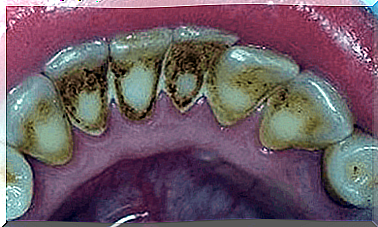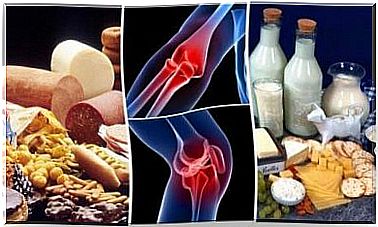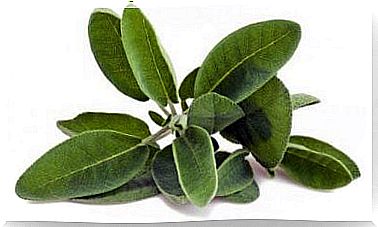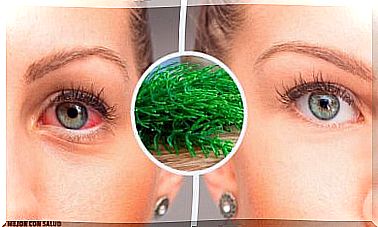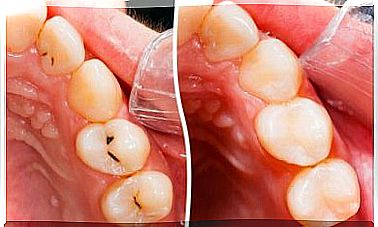Itchy Skin Or Pruritus: Symptoms, Causes And Recommendations

Itchy skin, or pruritus, is a common cause of medical visits in both children and adults. It can be due to many different reasons, from ordinary petty ailments to more serious problems.
Itching is defined as an irritating feeling that makes a person want to scratch themselves. It is usually the result of the body’s reflex reaction to immune or chemical stimuli. It is almost always associated with histamine.
What is itchy skin or pruritus?
It is important to clarify that itching is a symptom, not an independent disease. As such, it can take many different forms, some of which may not be related to the skin. In addition, the itching may be local or generalized.
It is good to keep an eye on the itching right from the start. Would it be triggered by some specific factors? What brings relief to that? Has there been itching before? Has anything worked on it before? And if so, how does the body react to it? All of this will help diagnose and determine the cause.
In acute itching, the symptoms last less than six weeks. If the itching lasts longer, it is a chronic form. Itching may occur on the scalp, upper body or limbs.

The most significant causes of itchy skin
Itchy skin may have primary skin changes, which may be a skin condition.
In contrast, in cases where there are no skin changes or where there is only secondary damage caused by itching, there is likely to be some external cause. Neurological and psychogenic disorders are included in this category.
Itchy skin with primary skin lesions
The most common skin conditions that cause generalized itching are as follows:
- Urticaria (hives): manifests as drinking skin changes that can enlarge and merge and disappear.
- Scabies: an infection caused by an ectopic disease.
- Prurigo nodularis: a relatively common skin condition in children with a peculiar nodular manifestation.
- Atopic dermatitis: Inflamed rash patches associated with atopic or contact dermatitis.
- Varicella (chickenpox): a viral infection that appears as blisters on the skin.
- Pityriasis rosea (red spot flaking ): red, scaly patches.
- Psoriasis: A skin problem characterized by dandruff caused by an autoimmune disorder.
Itchy skin with no primary skin damage
Many different types of itching disorders can be classified here, the most common of which are the following:
- Chronic renal failure: when the kidneys are not working normally.
- Cancers: most often blood-borne diseases such as polycythemia Vera or lymphoma.
- Intra-hepatic or extra-hepatic cholestasis: biliary fluid is not transported normally.
- Hypothyroidism or hypothyroidism: abnormal levels of hormones produced by the thyroid gland.
- Dry skin or xerosis: special mention should be made here of the elderly, where skin itching is common. In them, dehydration may be the most common cause of itchy skin, although it can also be caused by other causes. Itching usually occurs in the lower limbs.
Local itching
Local itching that occurs without rash refers to psychogenic or neuropathic itching. In this case, you may experience a burning sensation, pain or sensory impairment.
This is due to neuropathic disorders associated with neuropathies. The peripheral nerves transmit information poorly and cause a feeling of itching in the skin, which is why a person is constantly scratching themselves.
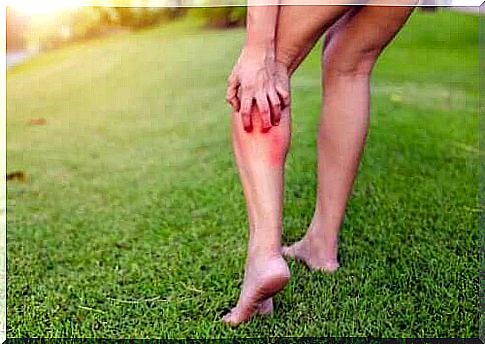
General treatment before a doctor’s diagnosis
Itchy skin is a common disorder, but experts still do not fully understand the pathogenic mechanisms that cause the feeling of itching. Crucial in assessing these disorders is whether a person has any primary skin disease.
If a patient is identified with primary skin lesions but the diagnosis is still uncertain, a skin biopsy may be required. In general, the absence of clear and visible signs suggests that the causative agent is an extracutaneous factor.
While many of the causes of itchy skin are harmless and often resolve on their own, some of them require a doctor’s assessment.
When trying to determine the cause of itching, you should keep the nails short and clean and scratch the itchy area only with the palm of your hand. Avoid tight clothing, use cotton rather than synthetic materials or wool, and avoid long, hot baths.
In addition, neutral soap and moisturizers should be used. Experts also do not recommend consuming coffee, alcohol or spicy foods, as all of these stimulate the secretion of histamine in the body. There are many treatment options, but it is always worth prefering prescription drugs in the first place.
